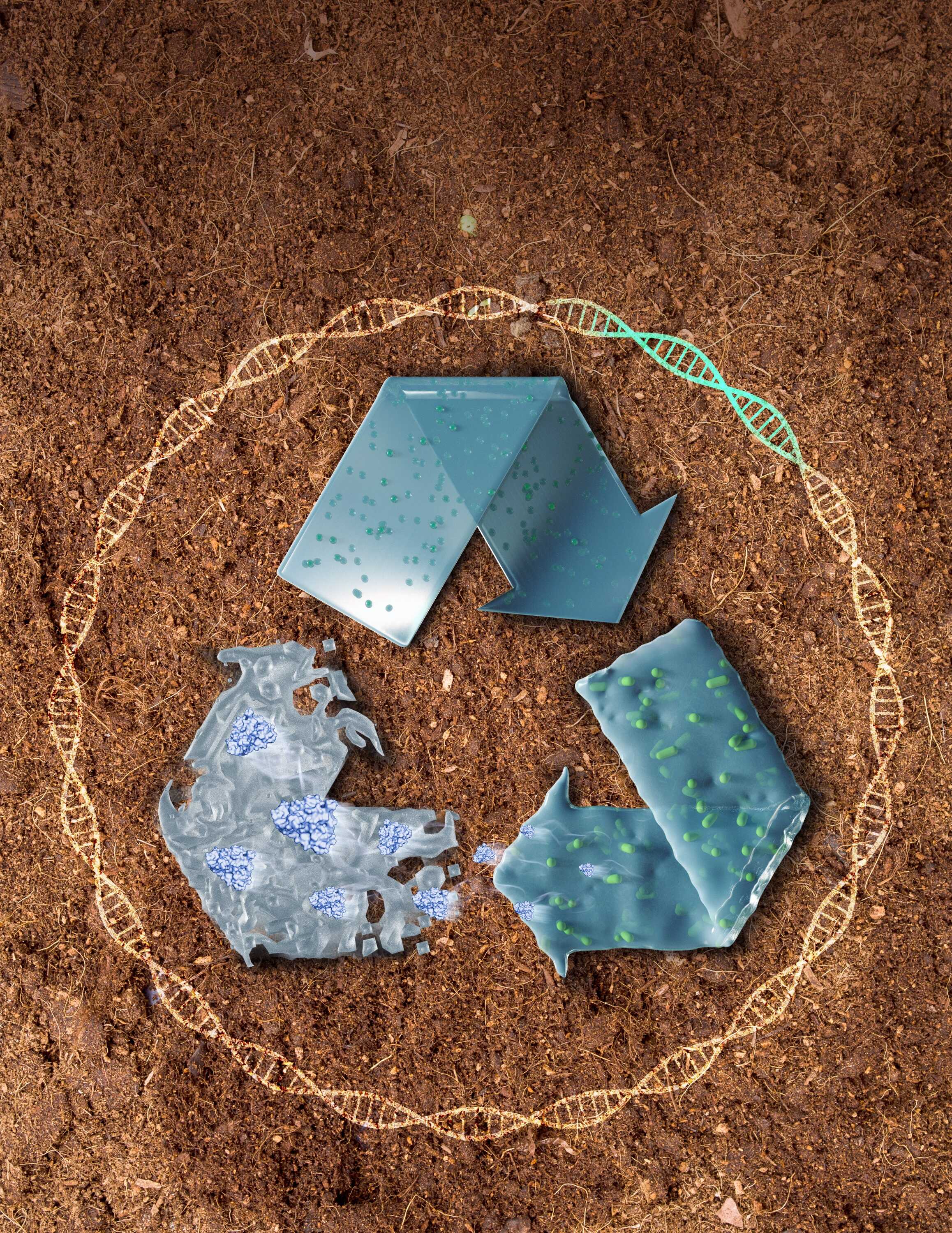
In a study published in Nature Chemical Biology, Dr. DAI Zhuojun's group at the Shenzhen Institute of Advanced Technology (SIAT) of the Chinese Academy of Sciences harnessed the natural resilience of spores, which can survive extreme environmental conditions, by programming them to secrete plastic-degrading enzymes under specific circumstances. These spores are embedded in plastic matrices using standard processing methods, and remain dormant under normal conditions but activate upon specific triggers.
The invention of plastics has revolutionized the daily life, but massive production and improper disposal of plastic waste have turned plastic pollution into a major environmental issue. While synthetic biology research has mainly focused on plastic-degrading enzymes, there has been little exploration of innovative methods for creating degradable plastics.
Microorganisms have developed strong resistance to harsh conditions over billions of years. When faced with extreme environments, bacteria can form spores, which are highly resilient and can withstand the dryness, high temperatures, and pressure typical in plastic processing.
In this study, researchers engineered Bacillus subtilis with a genetic circuit that controls the secretion of a plastic-degrading enzyme (lipase BC from Burkholderia cepacia) by synthetic biology. Under stress from heavy metal ions, Bacillus subtilis forms spores that are resistant to extreme conditions. Researchers mixed these engineered spores with poly (caprolactone) (PCL) plastic granules, and produced spore-containing plastics through high-temperature extrusion or solvent dissolution.
Tests showed that these "living plastics" had similar physical properties to regular PCL plastics. In daily use, the spores remain dormant, ensuring the plastic's stable performance.
The first crucial step in plastic degradation is releasing the spores embedded in the living plastic to revive the cells. Researchers demonstrated two approaches of spore release.
One approach uses lipase B from Candida antarctica (lipase CA) to erode the plastic surface. The released spores then germinate and express lipase BC, which binds to the ends of PCL polymer chains and nearly completely degrades the PCL molecules. The results showed that living plastic could degrade efficiently within 6-7 days, while ordinary PCL plastic subjected only to surface damage (lipase CA) still had a large amount of plastic debris after 21 days.
The other approach for spore release is composting. In the absence of any additional exogenous agents, living plastics in soil could completely degrade within 25-30 days, while traditional PCL plastic took about 55 days to degrade to a level that was invisible to the naked eye.
Besides, researchers explored the applicability of the proposed method beyond PCL plastics. They mixed spores carrying green fluorescent plasmids with various other plastics including polybutylene succinate (PBS), polybutylene adipate-co-terephthalate (PBAT), polylactic acid (PLA), polyhydroxyalkanoates (PHA), and even polyethylene terephthalate (PET), and processed the mixture at temperatures as high as 300°C. After releasing the spores through physical grinding, they found that the spores could still revive and express the green fluorescent protein, demonstrating the method's potential.
To validate the potential for scaling up, researchers conducted a small-scale industrial test on the PCL system using a single-screw extruder. The generated living PCL still exhibited rapid and efficient degradation properties. Moreover, researchers immersed the living functional plastic in Sprite for two months. In the absence of external factors, the living PCL maintained a stable shape, demonstrating its robustness during use.
This study provides new perspectives and methods for the development of biodegradable plastics and sustainability.

Researchers developed "living plastics" by engineering spores to produce Burkholderia cepacia lipase, enabling near-complete biodegradation of poly(caprolactone). (Image by SIAT)

86-10-68597521 (day)
86-10-68597289 (night)

52 Sanlihe Rd., Xicheng District,
Beijing, China (100864)

